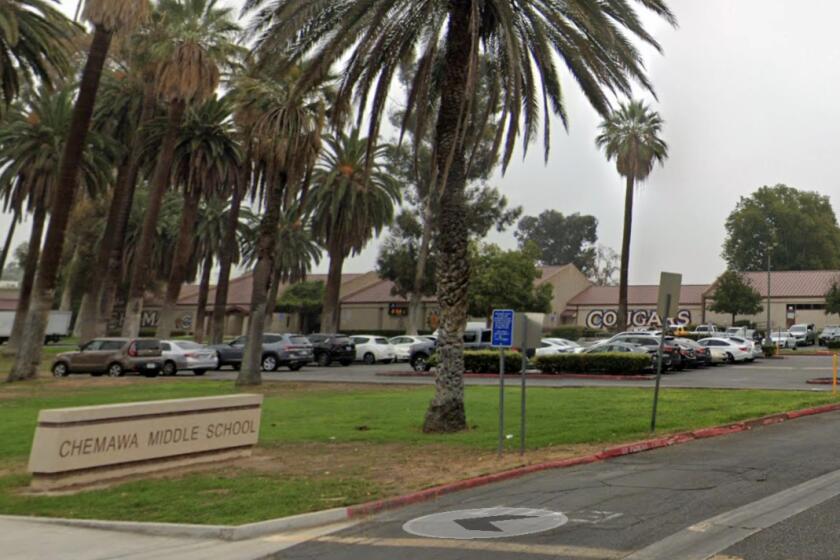Website aims to educate the public about state government
Judging by a recent show of hands in a Cal State L.A. classroom, even students of government are hard-pressed to show much interest in the nuts and bolts of California’s arcane system of laws and regulations.
Many students in professor Fred Gordon’s American government class said that they are disillusioned with Sacramento and that state leaders don’t represent their interests. But they became more engaged following a discussion with the founders of CaliforniaChoices.org, a new project designed to educate Californians about the complexities of state government and to encourage reform efforts.
The idea is to make people more aware of how legislation, ballot initiatives and the process of governing affect their lives, those involved with the project said. For the Cal State students, who have seen their fees increased, classes reduced and teachers furloughed because of state budget cuts, the lessons hit home.
“I used to believe that education wasn’t very important for the government, which was why they were cutting it,” Trenton Irons, 15, a sophomore, said after the class. “But now I understand that there are limited choices because of the large deficit. These issues are affecting me a lot more than I actually realized.”
The project is a collaboration between scholars from Stanford University, UC Berkeley and Cal State Sacramento, along with Next 10, a nonprofit education organization founded by Silicon Valley investor F. Noel Perry.
The main effort is an interactive website that aggregates opinion polls, ballot measure arguments, news and resources. The nonpartisan site includes a blog with contributions from academics and journalists, and videos from ordinary citizens speaking out about reform.
One of the most popular features is a page where readers can find endorsements from unions, newspapers and nonprofit organizations such as the AARP and the League of Women Voters for the five measures on Tuesday’s ballot.
Readers can also indicate their own choices on the propositions and e-mail the results to friends.
Since its formal debut May 27 at Cal State L.A., at least 3,000 people have used the endorsement feature, while the site overall has collected 4,000 unique visitors, said Jon Christensen, executive director of Stanford’s Bill Lane Center for the American West.
Visitors are spending an average of four minutes on the site, Christensen said, calling it an encouraging sign.
David M. Kennedy, a Pulitzer Prize-winning Stanford historian who helped develop the project, said that California could end up as a “failed state” and that residents should understand what’s at stake.
Kennedy cited the state Constitution, which he said has been amended more than 500 times since it was passed in 1879; by comparison, the U.S. Bill of Rights has been amended 17 times since its 1791 passage. California’s system of government is thus encrusted with more than a “century’s worth of barnacles,” he argued.
The state Constitution is “encumbered with mostly single issues that don’t relate to other issues; you can’t blame the public for not getting it,” Kennedy said. “The challenge is to make people understand their relationship to this complicated mess of a Constitution so that when they can no longer afford to send their kid to college, they can connect that to the recognition that the system itself needs to be overhauled.”
The website will evolve and explore different ways to engage the public, such as using social media and games to help people learn about such issues as education, health and the environment, and about ways to foster change. There are also plans to translate the website into languages other than English in an effort to engage new immigrants and ethnic communities, said Christensen.
After the Cal State discussion and a visit to the California Choices website, Chelsea Johnson, 18, said she will be better prepared to cast her first votes.
“It really showed me how sometimes people don’t know about the issues and so they just don’t vote,” said Johnson. “The website has great pros and cons and explanations. It really shows that you can make a difference.”
More to Read
Sign up for Essential California
The most important California stories and recommendations in your inbox every morning.
You may occasionally receive promotional content from the Los Angeles Times.











